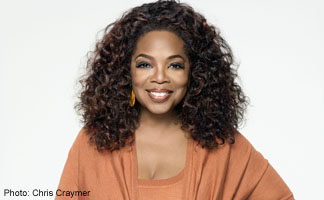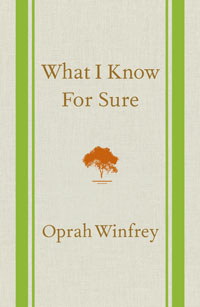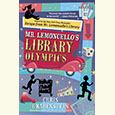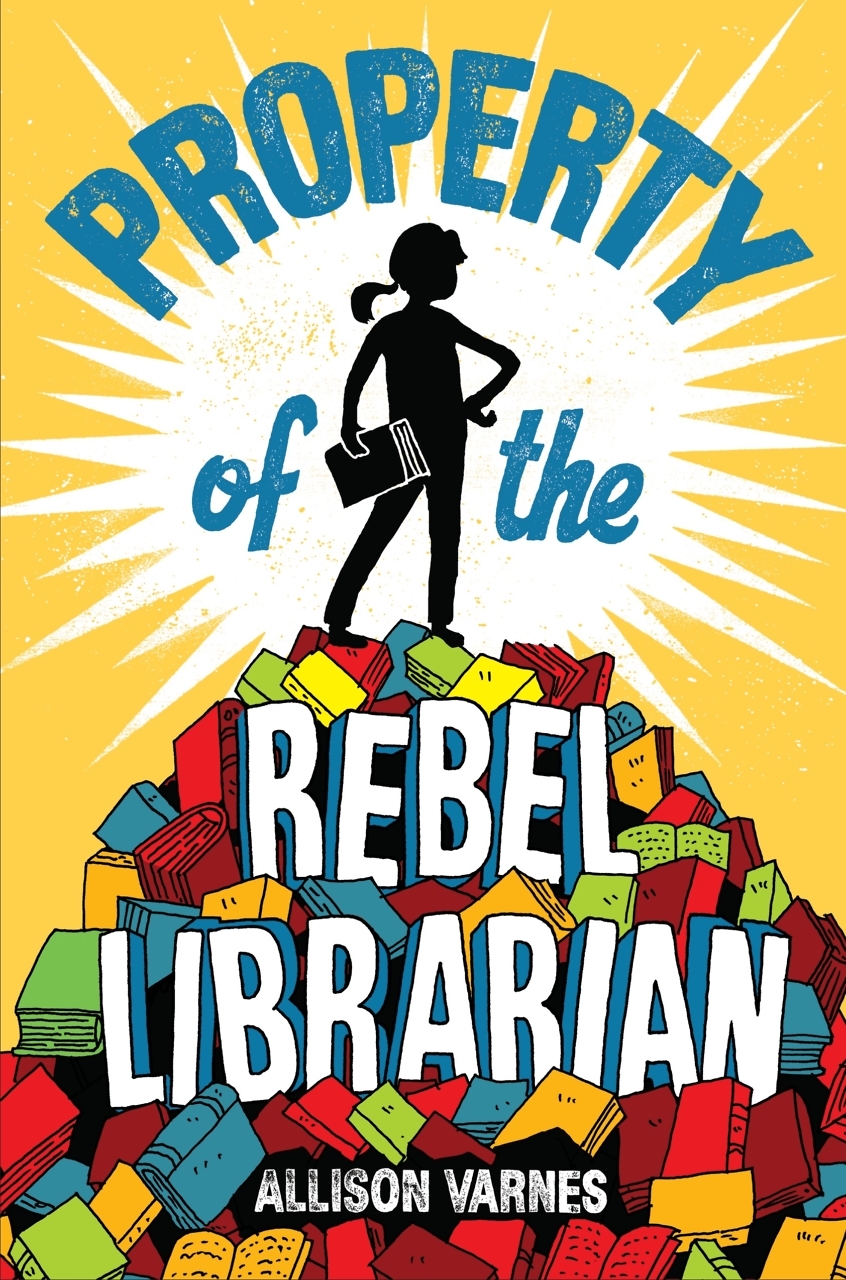Dream Big and Work Hard
Oprah’s new book offers an assortment of her distinctive personal philosophies
During a promotional interview for the movie Beloved, film critic Gene Siskel asked Oprah Winfrey what she knew “for sure.” The Tennessee State University alum calls this “the central question of my life,” and “What I Know For Sure” became the title of the monthly column she writes for O, The Oprah Magazine and also of her new book, a lifestyle devotional comprised of column excerpts from the past fourteen years.
 Small, attractively bound, and perfect for gift-giving, What I Know For Sure will undoubtedly delight Winfrey’s many fans. It distills her distinctive personal philosophies into short readings, though it doesn’t skimp on anecdotes about her painful childhood, her successful media career, her famous friends and mentors, and her current pursuits. Well represented are Gayle King, her best friend for nearly forty years; her stalwart boyfriend, Stedman; and spiritual guides such as Maya Angelou and Eckhart Tolle. The quintessential student of life, Winfrey is eager to share what she has learned throughout her extraordinary journey from an impoverished upbringing—the daughter of a single mother on welfare—to worldwide fame, incredible fortune, and the Presidential Medal of Freedom, among scores of other honors.
Small, attractively bound, and perfect for gift-giving, What I Know For Sure will undoubtedly delight Winfrey’s many fans. It distills her distinctive personal philosophies into short readings, though it doesn’t skimp on anecdotes about her painful childhood, her successful media career, her famous friends and mentors, and her current pursuits. Well represented are Gayle King, her best friend for nearly forty years; her stalwart boyfriend, Stedman; and spiritual guides such as Maya Angelou and Eckhart Tolle. The quintessential student of life, Winfrey is eager to share what she has learned throughout her extraordinary journey from an impoverished upbringing—the daughter of a single mother on welfare—to worldwide fame, incredible fortune, and the Presidential Medal of Freedom, among scores of other honors.
Winfrey candidly discusses her sexual abuse as a child, her pregnancy at fourteen, which books she keeps at her bedside, what kind of pancakes she makes for Stedman on Sunday mornings (blueberry-lemon), and her favorite Bible verse (Psalm 37:4). Perhaps most affecting are the passages about her struggles with weight and self-image: she writes of sleeping with a clothespin attached to her nose in an effort to change its shape and going on her first diet in 1977, when she was “23 years old, 148 pounds, a size 8, and I thought I was fat.”
What I Know For Sure is divided into eight sections, each with a one-word title exemplifying a key characteristic Winfrey wishes to highlight, such as “Joy,” “Clarity,” and “Awe.” In the section on “Resilience,” we encounter the author at twenty-one, clad in a forty-dollar skirt and eager to interview her first real celebrity: Jesse Jackson. “I had a fondness for telling other people’s stories,” she writes, “extracting the truth of their experience and distilling it into wisdom that could inform, inspire, or benefit someone else.” This is a skill she has put to good use throughout her long career in television, film, and print.
Under “Connection,” we see Winfrey at twenty-nine, writing a desperate (though unsent) love letter, which she later describes as “12 pages of whinin’ and pinin’ so pathetic that I didn’t recognize myself.” As a result of this experience and many others, she comes to understand that “a relationship built on real love feels good. It should bring you joy—not just some of the time but most of the time.”
 In “Possibility,” she describes one of the defining moments of her life: the time when a third-grade classmate hissed, “She thinks she’s so smart.” From that point on, Winfrey writes, she did everything possible to minimize her intellect and her accomplishments, in an effort to avoid seeming arrogant. Many years of hard lessons later, Winfrey has different advice for her readers: “You are built not to shrink down to less but to blossom into more. To be more splendid. To be more extraordinary. To use every moment to fill yourself up.”
In “Possibility,” she describes one of the defining moments of her life: the time when a third-grade classmate hissed, “She thinks she’s so smart.” From that point on, Winfrey writes, she did everything possible to minimize her intellect and her accomplishments, in an effort to avoid seeming arrogant. Many years of hard lessons later, Winfrey has different advice for her readers: “You are built not to shrink down to less but to blossom into more. To be more splendid. To be more extraordinary. To use every moment to fill yourself up.”
In the book’s final section, “Power,” Oprah discusses the damage done by gossip, her own regret at having participated in “irresponsible television” during the early days of her talk show, the duty of all citizens to vote, the wisdom of being debt-free, and what her battle with weight has taught her. She describes the story of her life as “seeking the fullest expression of self.”
Ultimately, the self-affirming advice here should be very familiar to Oprah devotees: take care of yourself physically, mentally, emotionally, and spiritually; believe in yourself and don’t let others make you feel incapable or unworthy; surprise yourself by remaining open to the mystery and possibility of your own existence. “Dream big—very big. Work hard—very hard,” Winfrey writes. “And after you’ve done all you can, fully surrender to the Power.” Let’s face it: there is no escaping the Power of Oprah.
A graduate of Auburn University, Tina LoTufo has worked as a technical editor at an engineering firm and as an editorial assistant at Peachtree Publishers, where she worked on books by Erskine Caldwell, Will Campbell, and Ferrol Sams, to name a few. She lives in Chattanooga.


